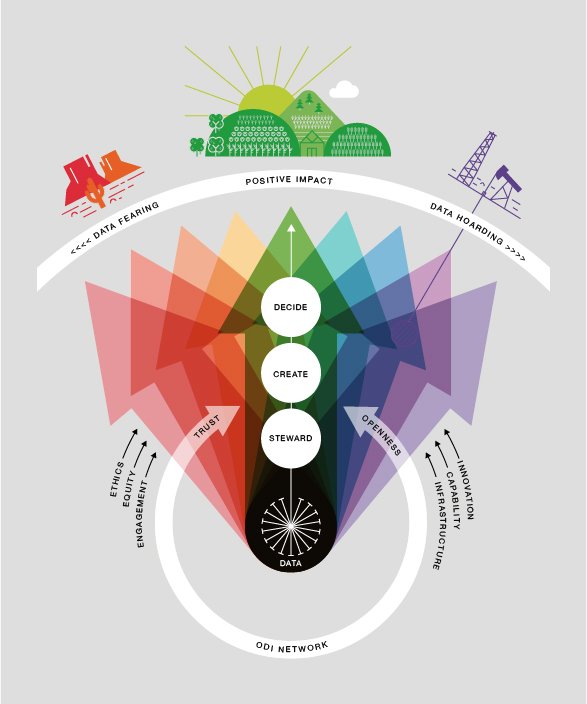
At the heart of the Open Data Institute (ODI)’s mission is the notion that data, if made available to people who need it, can enable better and faster decision making, make it easier to innovate, create more efficient and effective services and products, and fuel economic growth and productivity. There have been many studies on how data and better data flows create value – defined not just on monetary or financial terms, but also as societal value for individuals and the wider community.
We also know from countless examples that data can cause harm and therefore trust and trustworthiness are a key to a healthy ‘data ecosystem’. A more trustworthy data ecosystem is as essential to avoiding harm, as it is to reducing the fear of harm. Just as an ecosystem based on ‘data hoarding’ is ineffective, we also want to avoid a ‘wasteland situation’, where people fear data, to the point of opting out of data collection, and where organisations prefer not to use data for fear of scandals.

A more trustworthy data ecosystem, therefore, enables data openness, which in turn enables uses of data which create value for our societies and economies. We understand this qualitatively and can observe this interplay, but can we quantify it? Can we get a better sense of how much trust – or lack thereof – impacts the value created by data flows?
This is a hard question to answer: trust is complex, and depends on many factors. Trust builds gradually over time and can plummet in a day; we also know that lack of trust doesn’t entirely stop data collection and sharing. It is impossible to put figures on the value of lives lost through mistrust in data collection associated with life-saving services. However, putting an economic value on trust in data ecosystems more generally would help policymakers and companies justify investment in activities that build trust.
At the end of 2020, we therefore commissioned economics consultancy Frontier Economics to explore this topic with us, rigorously reviewing existing evidence and proposing, if possible, an economic model of the impact of trust on data ecosystems.
Their findings are rich, and nuanced. The evidence gathered overwhelmingly confirms that trust does matter if we want to create value with data. An increase in trust does correlate with an increase in data flow, leading to increases in value created. And the opposite is also true – a decrease in trust correlates with reduced data flow, and a reduction in the potential value created.
But trust is, as we know, only one of many factors in creating a healthy data ecosystem: infrastructure, capability, and an understanding of the many ways data can create value are also key. The report on the study conducted by Frontier Economics, published today in its full and abridged forms, is the first step in helping us evidence and quantify the contribution of trust to the value of data.
If you would like to discuss this report or work with us to further the creation of knowledge and evidence in this field, do get in touch with us at [email protected].